Meet the shepherdess working in one of Yorkshire’s most remote uplands
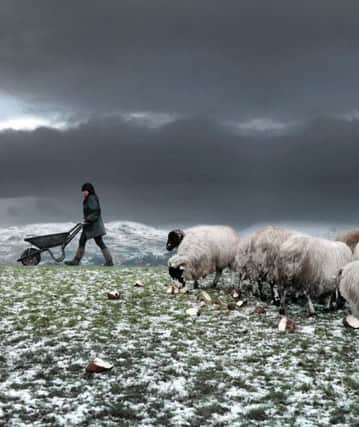

She points out the local landmarks. “We’re looking out across to the Howgill Fells, so you’re looking towards the Dales, Sebergh, Garsdale and over towards Hawes. Then there’s also Rise Hill, Dentdale and across to Kirkby Lonsdale.”
Alison remembers coming here years ago with her father when she was a little girl to pick some pigs up. “I stood in the yard and I remember the farmer leaning on a wall and looking at the view and saying to my dad, ‘I could stare at that view my whole life,’ and my dad agreed. Now, I get farmers coming here and asking if they can just look at the view.”
Advertisement
Hide AdAdvertisement
Hide AdOn a clement spring day like this, with birds flitting in and out of the eaves and a gentle breeze brushing the fields, it’s easy to see where the phrase ‘God’s Own County’ comes from.
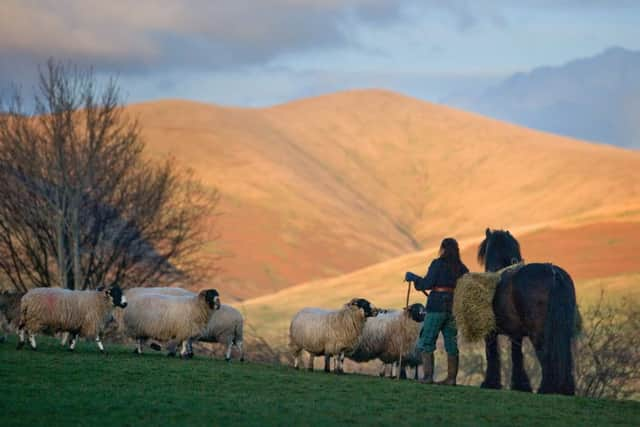

It isn’t always this idyllic, though. Perched on a remote hillside outside Sedbergh in the Yorkshire Dales National Park, at times it gets battered by the worst the weather gods can muster.
You need to be tough and iron-willed to live up here, qualities that shepherdess Alison O’Neill has in spades. She’s lived here at Shacklabank Farm for the past 20 years during which time she’s needed to call on her reserves of both.
For half of that time she’s run the 37-acre hillside farm on her own, after splitting up from her husband, while also raising her daughter.
Advertisement
Hide AdAdvertisement
Hide AdToday, she has 150 sheep as well as hens, ducks and a fell pony that she uses instead of a quad bike. She also runs a small fashion business making and designing tweed jackets with wool from her sheep.
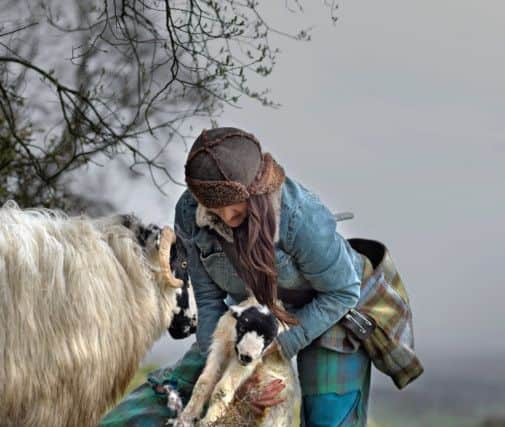

It’s quite some story and one that’s told in a new book, The Shepherdess – One Woman Farm put together by her and photographer Ian Lawson. It is an epic tome in every sense (it weighs in at 422 pages and a whopping five kilos) and charts Alison’s life on the farm over the seasons. It’s also spawned a photographic exhibition that opens next weekend at the Dales Countryside Museum in Hawes.
“It’s a story about how I’ve survived for 20 years on a tiny hill farm in the Yorkshire Dales,” she says. “I came here with £60 in the bank and no tractors or trailers or any sheep, I didn’t inherit the farm and I didn’t move here because my husband was a farmer.”
She’s fiercely proud of her roots. “I’ve got a Lancashire postcode and I’m in Cumbria, but I’m in the Yorkshire Dales Natioinal Park. I’m a Yorkshire lass and I was born and bred in Sedbergh, which was in Yorkshire, and my family have farmed for generations. We’re from Garsdale so the Yorkshire Dales are important to me and Ian, and this farm epitomises everything the Dales are about.”
Advertisement
Hide AdAdvertisement
Hide AdAlison first came to people’s attention a decade or so ago when she was dubbed ‘the barefoot shepherdess’ – a phrase that arose because she did guided fell walks barefoot around the hills surrounding her home.
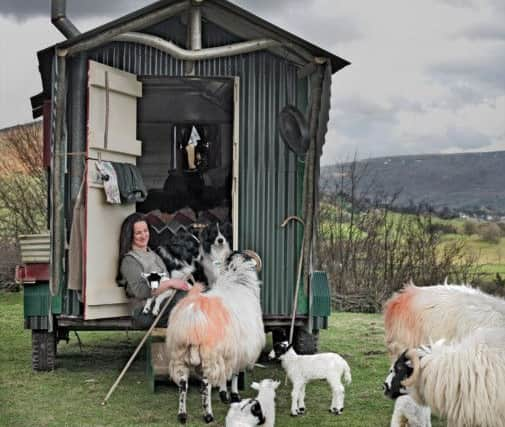

The book came about after Ian rang her up out of the blue asking if he could do a photo diary of life on her farm. She was initially reticent but after he showed her some of his work she agreed. “The initial idea was to do this over a 12-month period, but it’s ended up being eight years. I’ve tried to stay true to the farming way of life and what I love is that Ian’s captured that with his brilliant photos,” she says.
Growing up, Alison knew such legendary Dales figures as Hannah Hauxwell, who used to visit her grandparents for tea, and Alfred Wainwright.
At school she wanted to be a designer or a farmer but after her family sold its farms in the 1970s, she instead spent time travelling abroad before returning to Yorkshire 20 years ago.
Advertisement
Hide AdAdvertisement
Hide AdShacklabank, which is owned by the Church, was the only farm available at the time that she could take over as a tenant. It was a bit run-down, but she was determined to make a success of it. “In some small way I wanted to almost prove that a farm run by one woman, her daughter and a couple of dogs could survive.”
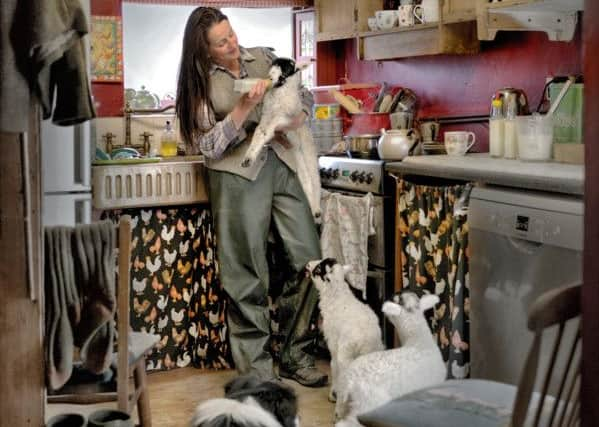

It’s not only survived, but flourished. Though it’s done so against all the odds. “It’s been a struggle at times because to make it pay has been difficult. There are not many hill farms left with 37 acres and a bit of fell where one person makes a living.”
There were times when the future looked bleak, though. “I had a daughter to look after and sheep to feed. Quite a few people told me they thought I should leave but I didn’t because this was the only chance I was going to get at farming.”
So she stuck at it. “There were bitterly cold winters where it was freezing in the bedrooms and we were trying to burn wet wood because there was nothing else. When I fell over on the ice there wasn’t a husband to help pick me up and when I was ill there wasn’t someone else who could drive the tractor.”
Advertisement
Hide AdAdvertisement
Hide AdHer lowest ebb was about six years ago. “I was on my own with no partner and struggling to make it pay. I’d started the tweed business and just begun working on the book and people were starting to become aware of me, but at home I had nothing and I was struggling to pay the bills. I didn’t want to let people know how hard it was.”
After the 2001 foot and mouth outbreak, Alison sold her pigs and cattle and focused on her sheep. She did a programme of destocking which has benefitted local fauna and flora. “This has brought back the curlews, lapwings and skylarks. I’ve got wet pastures where I’m looking at bringing back wild flowers and red squirrels and otters. So the whole farm is like a mini Yorkshire Dales.”
She’s a trained mountain leader and has done guided walks and, for the past six years, has been running her successful fashion business from what she calls her “wool shed” next door, where, when she’s not running around after her flock of sheep, she makes her “shepherdess jackets”.
Alison has transformed her fortunes and that of the farm, though she fears this way of life is disappearing. “It’s our heritage and it reminds us of a place where we all want to be. If we lose our small hill farms then we lose a large part of who we are,” she says.
Advertisement
Hide AdAdvertisement
Hide Ad“Small hill farms are going because the farmers can’t make a living and they’re perfect places for people from the cities to buy a beautiful farmhouse and a few acres of land.”
However, through grit and determination she has shown what can be achieved. “I was born to it, as my granddad said, and these twenty years at Shacklabank Farm have been the happiest, and the hardest, of my life. “And I wouldn’t change it. It’s taught me a lot, it’s taught me that I can survive on my own. There have been tears and triumphs, but it is a beautiful life.”
Shepherdess – One Woman Farm exhibition at the Dales Countryside Museum, Hawes, runs from May 22 to September 8. There is an entrance fee of £4.65. The exhibition is open every day, from 10am to 5pm. The entrance fee goes towards the conservation work of the Dales Countryside Museum.
Shepherdess – One Woman Farm, by Ian Lawson, costs £155 and is available from his website www.ianlawson.com